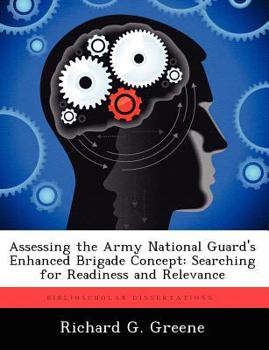Assessing the Army National Guard's Enhanced Brigade Concept: Searching for Readiness and Relevance
The Army's Enhanced Brigades were created in the early 1990s to correct readiness deficiencies discovered in the unsuccessful mobilization of Army National Guard combat units for the Persian Gulf War. According to national leaders, the US military cannot prosecute a major combat operation without them. Critics have consistently questioned current Enhanced Brigade readiness and their relevance to US military strategy.
To improve Enhanced Brigade readiness, the Army has instituted a number of integrative programs; these include the Training Support XXII program, the Bosnia Task Force, integrated divisions, and others. Despite the commitment of considerable resources, only very modest improvement in premobilization readiness has been realized and these units are still far less ready than the Army desires.
Additionally, Enhanced Brigades are routinely deployed to perform tasks outside of their role in the National Military Strategy. Instead of focusing on readiness for Major Regional Conflicts, Enhanced Brigades are conducting peace operations in Europe and the Middle East, while bearing the burden of ongoing Homeland Security operations.
This thesis will provide an investigation into how effective the Army has been in bringing Enhanced Brigades to required readiness levels and keeping these units relevant to the US military's role in accomplishing national strategic objectives.
To improve Enhanced Brigade readiness, the Army has instituted a number of integrative programs; these include the Training Support XXII program, the Bosnia Task Force, integrated divisions, and others. Despite the commitment of considerable resources, only very modest improvement in premobilization readiness has been realized and these units are still far less ready than the Army desires.
Additionally, Enhanced Brigades are routinely deployed to perform tasks outside of their role in the National Military Strategy. Instead of focusing on readiness for Major Regional Conflicts, Enhanced Brigades are conducting peace operations in Europe and the Middle East, while bearing the burden of ongoing Homeland Security operations.
This thesis will provide an investigation into how effective the Army has been in bringing Enhanced Brigades to required readiness levels and keeping these units relevant to the US military's role in accomplishing national strategic objectives.
Format:Paperback
Language:English
ISBN:1249404622
ISBN13:9781249404620
Release Date:September 2012
Publisher:Biblioscholar
Length:76 Pages
Weight:0.34 lbs.
Dimensions:0.2" x 7.4" x 9.7"
Customer Reviews
0 rating





